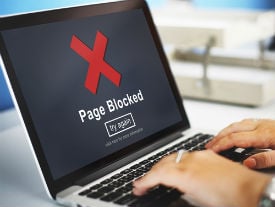Earlier this year Hollywood’s Motion Picture Distributors’ Association stated that site-blocking was the only option left to beat online piracy.
While it’s impossible to completely eradicate the phenomenon, rightsholders generally see ISP blockades as one of the most effective tools at their disposal.
This is also true for Sky TV New Zealand. Last year the company took its first steps in this direction, and it is now pushing on. Newsroom reports that Sky hopes to file a lawsuit targeting The Pirate Bay and an unnamed sports streaming site before the end of the year.
The company just released the results of an extensive piracy survey which shows that 29% of all New Zealanders have pirated sport and entertainment during the last month. The majority of pirates prefer streaming, but downloading and pirate boxes are popular too.
“We’ve known that piracy is a problem for a while, but the scale is even bigger than we thought,” SKY spokesperson Sophie Moloney says.
“If piracy remains unchecked, it risks really hurting the sports and entertainment industry in New Zealand, and our ability to create great content,” she adds.
The lacking availability of legal viewing options is the main reason why people pirate, the research reveals. Legal content is either not available or it’s significantly delayed. Interestingly, non-pirates believe that people mainly turn to unauthorized offerings to avoid paying.
Sky TV, however, believes that there are plenty of legal option and will push its blocking plans through.
“Other countries are taking steps to stop piracy and encourage people not to steal content, and we want to do the same here in New Zealand, including by way of blocking pirate websites,” Sky TV’s Moloney says.
Surprisingly, there is even support for this effort among self-proclaimed pirates.
Just over half of all pirates agreed that they “would be happy for my ISP to block access to a piracy website if it was required by a court to do so.” This is also preferred over other options, such as tighter regulation or lawsuits against individual pirates.
“Site-blocking is used in 42 countries around the world, including Australia and the UK. It’s good to see that many New Zealanders would prefer that these dodgy sites are blocked from view using this approach,” Moloney notes.
Whether Internet providers feel the same way has yet to be seen. When Sky TV first announced its blocking intentions last year, local ISPs responded critically.
“SKY’s call that sites be blacklisted on their say so is dinosaur behavior, something you would expect in North Korea, not in New Zealand. It isn’t our job to police the Internet and it sure as hell isn’t SKY’s either, all sites should be equal and open,” said Taryn Hamilton of local IPS Vocus at the time.
ISPs instead pointed out that rightsholders should focus on improving the legal options. And with Sky TV’s research revealing ‘limited legal options’ as the main motivation to pirate, they are likely to stick with this.


 Earlier this year Hollywood’s Motion Picture Distributors’ Association stated that site-blocking was
Earlier this year Hollywood’s Motion Picture Distributors’ Association stated that site-blocking was 



